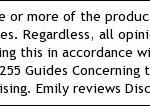This is a sponsored guest post.

For a more sophisticated and adult audience, the animated series BoJack Horseman is the best sitcom. The star of the TV show is a bitter, inebriated horse who played a successful and well-known comedic actor in the 1990s. BoJack manages his serious PTSD, alcoholism, depression, and other mental health issues. The sitcom is amusing, and informative, and imparts important life lessons. Read on to find out what it teaches us about mental health.
All you need to watch this show is a good TV service, and for that, we suggest you check out the WOW channel lineup. WOW TV not only has great channels for you to watch your favorite sitcoms but it also comes with a list of on-demand content to watch. So, get your TV package now and enjoy.
Here are some of the most important lessons you can learn from Bojack Horseman. Let’s take a look!
People’s Lives Can Be Positively Affected by Creativity
The sitcom is a great example of how art can save people, despite being a mockery of the entertainment business. When Diane tells BoJack that his show has helped her deal with life and that her favorite half-hour of the day used to be the one in which she watched his show, it serves as an illustration of this. He had no idea that his work might affect someone’s life in such a lovely way, but it did. Dianne discovered a light amid a cruel, toxic, and dismal environment that never truly felt like home –thanks to BoJack’s artwork.
All People Have Their Fair Share of Heartbreak and Sorrow
Well, everyone experiences damage in different ways. As the series goes on, we discover that BoJack is not the only one who has agony, difficulties, and poor behavior; other people also experience heartbreak.
Mr. Peanutbutter serves as one such illustration. Even though he appeared content, in control, and wealthy, there wasn’t much that could shield him from his difficult times. We notice from Peanutbutter’s character and his growth, that no one truly leads a perfect life despite how wonderful it may appear from a distance.
Princess Caroline is similar, she appears composed and well-groomed, but she also struggles with her ghosts from the past. For instance, the demons that continue to plague her from the time she wanted to get pregnant but was unable to because of some medical concerns.
Even If They’ve Hurt You, You Can Still Love Them
There are various examples of this lesson, but BoJack and Diane’s is the most pertinent and lovely. Their unique friendship has its share of highs and lows. Although they occasionally cannot comprehend one another, the two share a sort of love-hate connection and are always devoted to each other.
The roughness of their behaviors and language may cause outsiders to doubt if their relationship will ever continue, yet despite their brutal battles, the two never cease caring for one another.
Their weaker times cause them to spout comments that are degrading and hurtful. The fact that they both come from dysfunctional, emotionally distant families that never expressed love for them, as well as the fact that despite their disagreements, the two are always friends and connect on a deeper level, is what makes them care for one another.
The Cycle of Pursuing Happiness is Dangerous
When BoJack finally receives his Emmy after acting as Secretariat in a biopic, the joy abruptly transforms into another bout of depression. It seems as if no matter how hard you try to find happiness, once you do, it transforms into deeper despair that leaves you wondering, “What comes next?”
Therefore, it is essential to quit seeking happiness in great accomplishments and start experiencing it in the little things. This sitcom teaches us a significant and fundamental lesson that everyone should be aware of.
Healing Is Not Linear
When tackling anxiety, sadness, inner demons, and past traumas, this TV show is highly realistic, which is what distinguishes it from other TV shows. We learn that dealing with these issues requires continuous effort; recovery takes more than a single day. It talks about how every time BoJack leaves that zone; he worries about relapsing and falling back into his old routines.
Your mental condition can frequently only be maintained and not regained because recovery takes time. Even if you fall, what is important is that you get back up and try again. At the end of the day, what matters is that the individual is trying and wants to improve, which we frequently witness in all characters. In this instance, BoJack demonstrates how difficult it is to reach the very bottom and how one may still rise above it, but it requires fortitude and perseverance.
You’re Not Obligated To Forgive Those Who Wronged You
When BoJack tries to apologize to Herb for his inappropriate behavior, Herb tells him that he has not forgiven him since he is about to pass away. This demonstrates how people are not obligated to pardon us for the wrongs we committed against them.
When you harm someone, the harm you cause takes time to mend, and for some people, the damage may never mend. Because of this, no one is required to forgive anyone. BoJack understands he must accept the fact that Herb never forgave him and died dissatisfied with him.
Closure Is Just a Fallacy
BoJack is the best illustration of how the idea of closure is only fiction because he must deal with his prior traumas, concerns about his absent parents, and remorse for harming Herb. BoJack did not have closure after Herb passed away because Herb would not forgive him. This realization led BoJack to understand that he will never experience closure because the people who could have provided it are no longer alive.
Everyone needs to comprehend this because it is a very real and profound idea. You will ultimately stop seeking resolution and learn to live with it when you begin to accept that everything is as it is and that the only thing that matters is growth. This sitcom does a fantastic job of explaining this idea.
Final Thoughts
You are missing out on a masterpiece if you haven’t seen BoJack Horseman yet. The sitcom is the work of a genius, and you should watch it if you still haven’t.

Hi there! I am Emily Evert, the owner of Emily Reviews. I am 28 and live in a small town in Michigan with my boyfriend Ryan and our two pugs. I have a large family and I adore my nieces and nephews. I love reading memoirs, and learning about child development and psychology. I love watching The Game of Thrones, Teen Mom, Sister Wives and Veep. I like listening to Jason Isbell, John Prine, and other alt-country or Americana music. I created Emily Reviews as a creative outlet to share my life and the products that I love with others.
This post currently has one response.





















The encouragement to approach mental health with empathy and to dismantle the stigma surrounding it resonates with the idea that open dialogue is essential for fostering a supportive and understanding community.